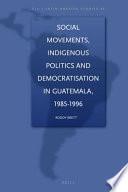
Statistics for Politics and International Relations Using IBM SPSS Statistics
Guiding you from first principles to advanced techniques, this book uses IBM SPSS Statistics examples specific to your Politics and International Relations studies to equip you with the tools to understand key concepts in quantitative research, and use them to produce and interpret data. The book takes you through the entire research process, from choosing a research question through to writing up your findings. Key features include: Software-specific sections in each chapter to show you how to use SPSS, while mathematical equations are kept to a minimum Packed with real life examples Extensive learning features including: chapter objectives, boxed summaries, illustrations, exercises and end-of-chapter questions, suggestions of further reading and a glossary Accompanied by a collection of online resources including datasets, exercises, multiple choice questions, podcasts, videos and further reading and weblinks. This is an invaluable research companion for students of Politics and International Relations using IBM SPSS Statistics.
- ISBN 13 : 1526451980
- ISBN 10 : 9781526451989
- Judul : Statistics for Politics and International Relations Using IBM SPSS Statistics
- Pengarang : Helen M. Williams,
- Kategori : Political Science
- Penerbit : SAGE
- Bahasa : en
- Tahun : 2020
- Halaman : 408
- Google Book : https://play.google.com/store/books/details?id=FObNDwAAQBAJ&source=gbs_api
-
Ketersediaan :
This is an invaluable research companion for students of Politics and International Relations using IBM SPSS Statistics.







